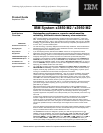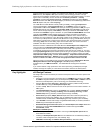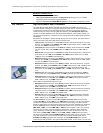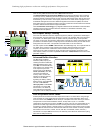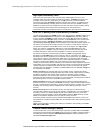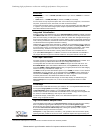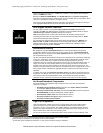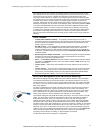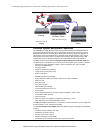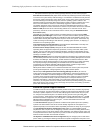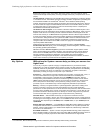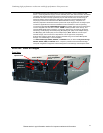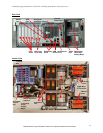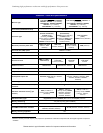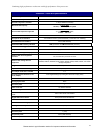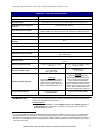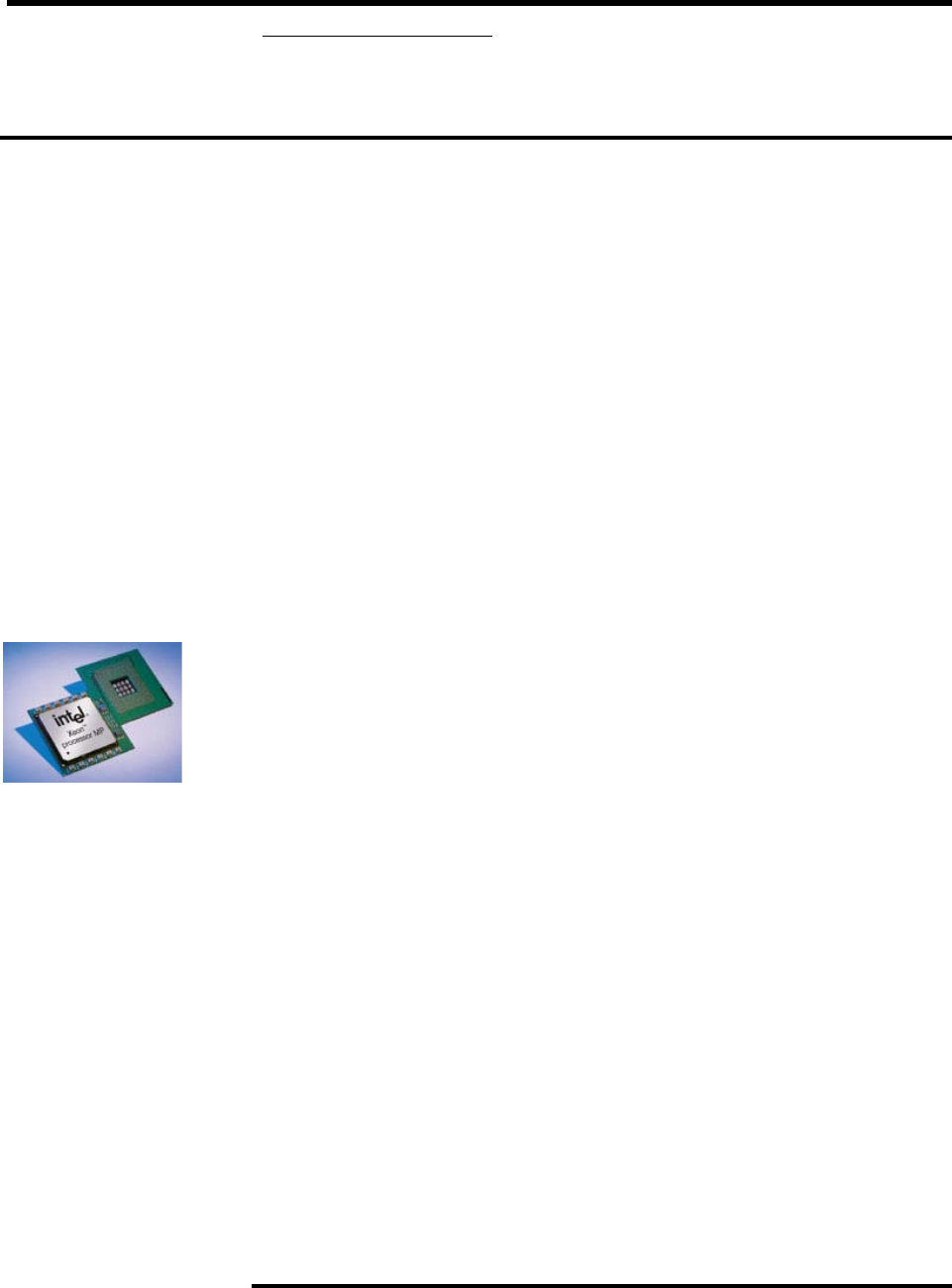
Combining high-performance architecture with high-performance Xeon processors
Please see the Legal Information section for important notices and information.
3
IBM System x3950 M2-specific
• ScaleXpander Option Kit standard
• Offers physical partitioning at four-socket granularity allowing you to run multiple
operating systems on the same integrated hardware
• Support for up to two ServeRAID-MR10k options if a multi-chassis configuration is used
Key Features
High-Performance Xeon Processors
The x3850 M2 and x3950 M2 ship with two high-performance Intel Xeon processors, and
support up to four, allowing you to upgrade as business needs require. The eX4 servers also go
a step further by allowing you to add additional nodes (chassis) to increase the number of
sockets from 4 to as many as 16 (using four total chassis). (The ScaleXpander Option Kit
converts a 4-socket x3850 M2 into an ultra-expandable x3950 M2.) With multiple chassis, you
can use physical partitioning to segment the one physical server into multiple logical servers for
virtualization.
Processors can be added or replaced through the top cover of the system. The system offers a
choice of processor clock rates, FSB speeds and power draw:
• 130W six-core Xeon processor model X7460 at 2.67GHz, with 64-bit extensions, low power
draw per core (21.67W), quad 1066MHz FSBs, 9MB of L2 processor cache (3 x 3MB; 1.5MB
per core), and 16MB of shared L3 cache
• 130W quad-core Xeon processor model X7350 at 2.93GHz, with 64-bit extensions, 32.5W
per core of power draw, quad 1066MHz FSBs, and 8MB of L2 cache (2 x 4MB; 2MB per
core)
• 90W six-core Xeon processor model E7450 at 2.4GHz, with 64-bit extensions, extremely low
power draw per core (15W), quad 1066MHz FSBs, 9MB of L2 processor cache (3 x 3MB;
1.5MB per core), and 12MB of shared L3 cache
• 90W quad-core Xeon processor model E7420 at 2.13GHz, with 64-bit extensions, low power
draw per core (22.5W), quad 1066MHz FSBs, 9MB of L2 processor cache (3 x 3MB; 1.5MB
per core), and 8MB of shared L3 cache
• 80W quad-core Xeon processor model E7330 at 2.4GHz, with 64-bit extensions, low power
draw per core (20W), quad 1066MHz FSBs, and 6MB of L2 cache (2 x 3MB; 1.5MB per core)
• 80W quad-core Xeon processor models E7320 at 2.13GHz, with 64-bit extensions, low
power draw per core (20W), quad 1066MHz FSBs, and 4MB of L2 cache (2 x 2MB; 1MB per
core)
• 80W dual-core Xeon processor model E7210 at 2.4GHz, with 64-bit extensions, 40W per
core of power draw, quad 1066MHz FSBs, and 8MB of L2 cache (2 x 4MB; 4MB per core)
• 50W quad-core Xeon processor model L7445 at 2.13GHz, with 64-bit extensions, extremely
low power draw per core (12.5W), quad 1066MHz FSBs, 9MB of L2 processor cache (3 x
3MB; 1.5MB per core), and 12MB of L3 cache
Also available via special bid/configure-to-order:
• 90W quad-core Xeon processor model E7440 at 2.4GHz, with 64-bit extensions, extremely
low power
draw per core (15W), quad 1066MHz FSBs, 9MB of L2 processor cache (3 x
3MB; 1.5MB per core), and 16MB of shared L3 cache
• 90W quad-core Xeon processor model E7430 at 2.13GHz, with 64-bit extensions, extremely
low power draw per core (12.5W), quad 1066MHz FSBs, 9MB of L2 processor cache (3 x
3MB; 1.5MB per core), and 12MB of shared L3 cache
• 65W six-core Xeon processor model L7455 at 2.13GHz, with 64-bit extensions, extremely
low power draw per core (10.83W), quad 1066MHz FSBs, 9MB of L2 processor cache (3 x
3MB; 1.5MB per core), and 12MB of shared L3 cache
The dual-core Xeon processors contain two complete processor cores. Each processor
contains two 4MB L2 caches, 4MB per core (8MB total per processor). The two cores appear
to software as separate physical processors. The dual-core processors can offer more than
double the performance of a same-speed single-core Xeon processor (depending on workload).
Similarly, quad-core Xeon processors contain four processor cores. The cores share dual
2MB, 3MB, or 4MB L2 caches (4MB, 6MB, or 8MB total per processor). That is, two cores per
L2 cache. They can offer more than double the performance of dual-core Xeon processors
(again, depending on workload). The six-core processors contain six processor cores. The
cores share dual 4MB, 6MB, or 8MB L2 caches (8MB, 12MB, or 16MB total per processor).
The servers provide four separate 1066MHz FSBs (front-side buses), one per processor. Each
of the four FSBs (which connect memory and I/O to the processor) boasts a peak rate of
8.53GBps (34.1GBps aggregate).This contrasts to the two 667MHz FSBs (with up to two
processors per FSB) provided in the original x3850/x3950 models. In other words, you now have



